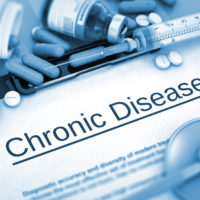
Consultation Today
- Tel: 561-686-6200
- Fax: 561-686-0303


It is important for Elder Law Attorneys to understand the medical conditions that afflict their clients.
C.O.P.D. is a disease that damages the lungs, which causes distress when the individual tries to breathe. The airways that carry air in and out are at least partially obstructed. The most common cause of C.O.P.D. is cigarette smoking. Most people with C.O.P.D. are current or former cigarette smokers. Pollution, dust or chemicals may also cause this condition over a long period of time. Air circulation, both in and out, is obstructed because the airways and air sacs lose their elasticity. The walls between many of the air sacs are destroyed. The walls of the airways become thick and inflamed. Cells in the airways make more mucus than usual. This tends to clog the airway.
C.O.P.D. develops slowly and it may be years before symptoms, such as shortness of breath, become obvious. This disease is usually diagnosed in middle-aged or older people. It is a major cause of death and illness. There is no cure for C.O.P.D. the damage to the airways and lungs cannot be reversed. C.O.P.D. includes emphysema and chronic bronchitis.
Dementia is a word for several symptoms caused by disorders that affect the brain. It is not a specific disease. Those who suffer from dementia may be unable to think well enough to do normal activities, including dressing or eating. People with dementia may lose their ability to solve problems or to control their emotions. Their personalities may change, sometimes for the worse, making difficult situations for their families or caregivers. Those with dementia may become agitated or see things that are not there. Memory loss is a common symptom of dementia. However, memory loss alone is not does not mean a person has dementia.
People with dementia have severe shortfalls with tow or more brain functions such as memory and language. There are many causes of dementia. Alzheimer’s disease and stroke are significant causes. Alzheimer’s is a form of dementia. There are other forms of dementia such as Lewy Body Disease. Drugs are available to treat some of these diseases. However, these various forms of dementia are not curable. The medications available may improve symptoms or slow the progress of the disease.